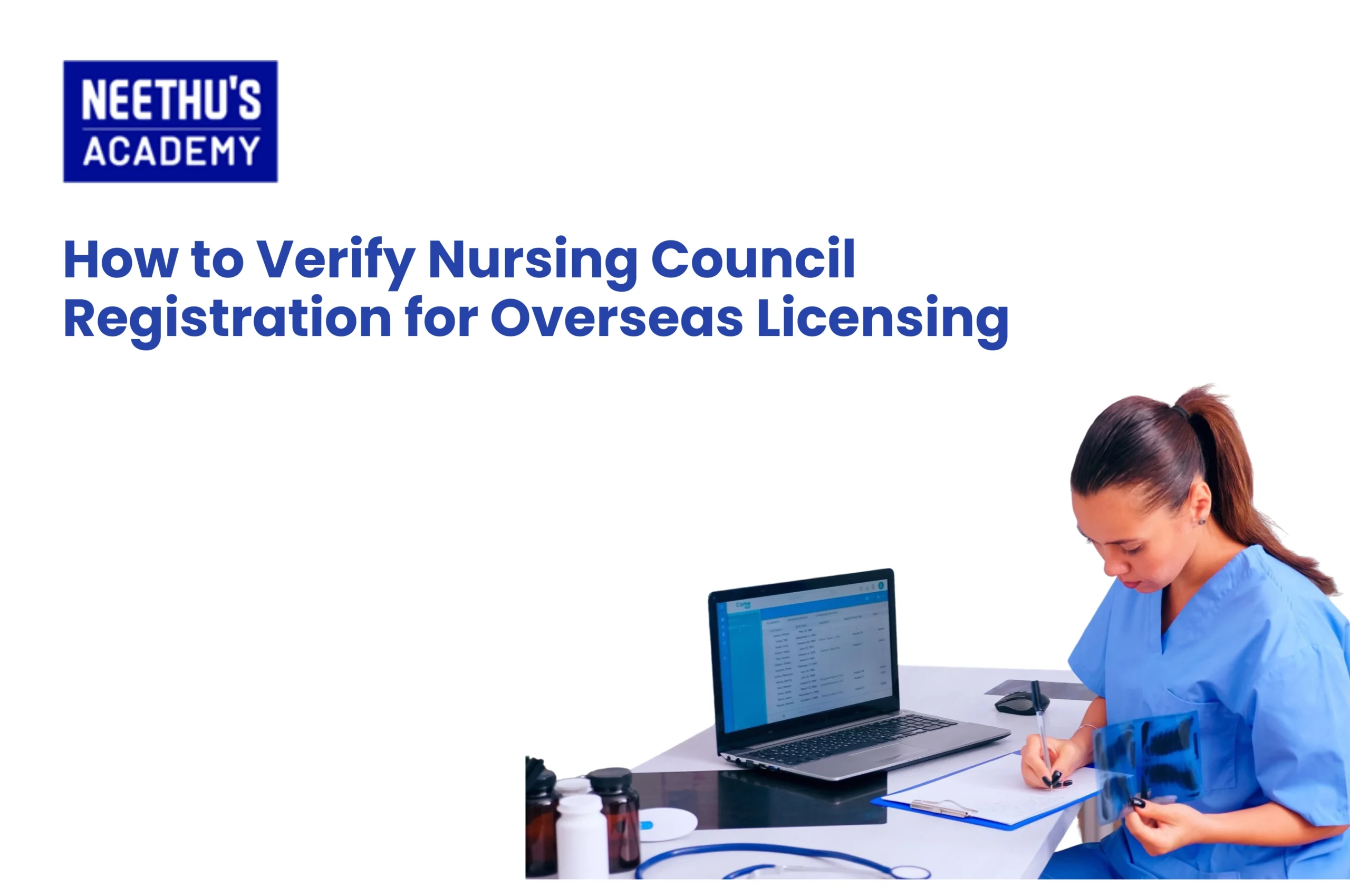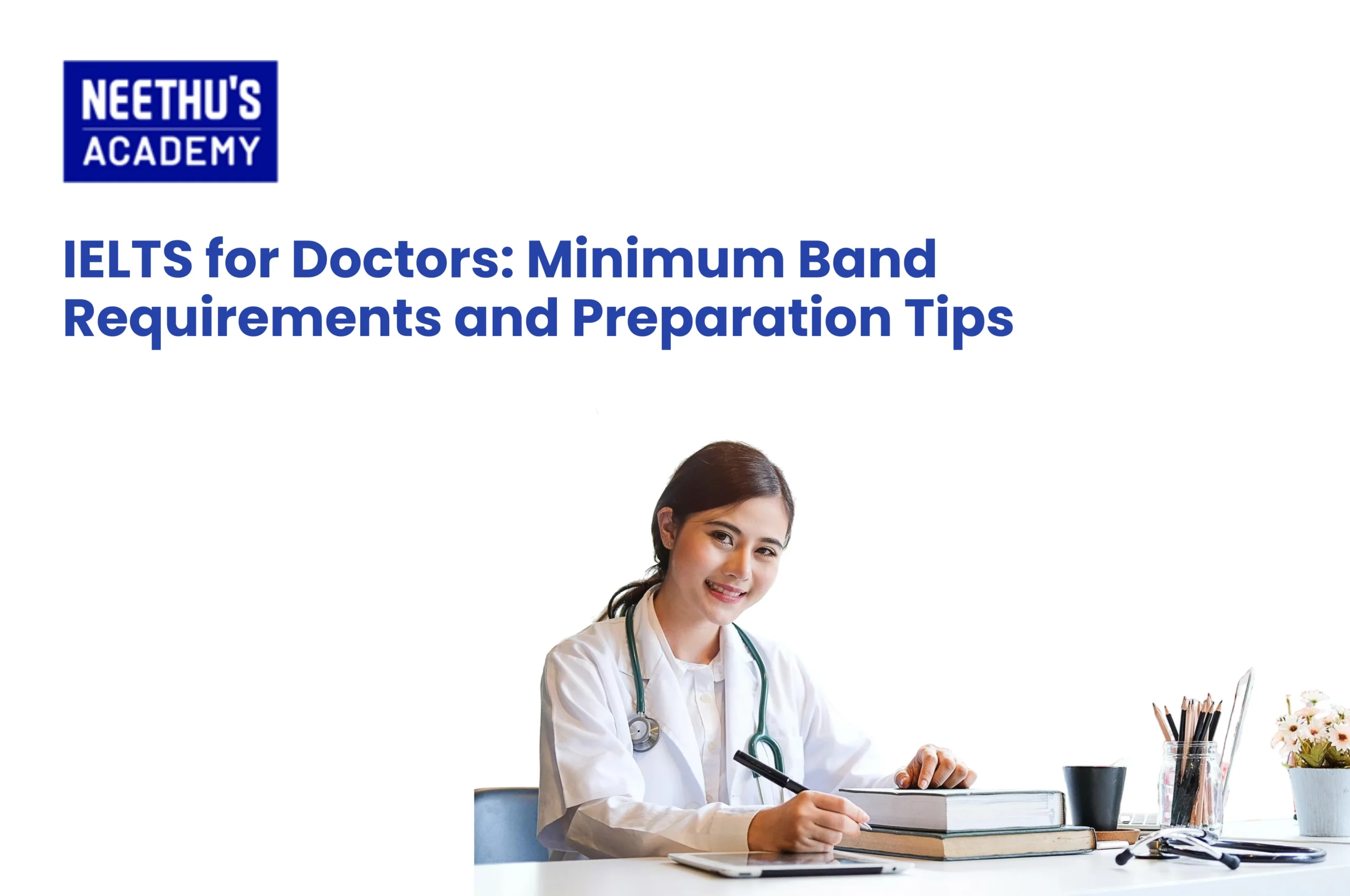The Occupational English Test is an entry pass for health care providers, including pharmacists, showing proof of proficiency in using English in…

OET Speaking Tips For Patient Counselling
When it comes to the OET sub-test, Pharmacists need to be self-assured, compassionate, and informed to manage real-life healthcare conversations. One of the most prevalent and critical duties is patient counseling, where your interaction can immediately influence a patient’s knowledge and health outcomes. Whether you are studying on your own or taking up coaching, becoming proficient at this skill is crucial to passing the test and also to your career in the future. This blog discusses practical OET speaking tips, particularly for OET pharmacist patient counseling role-plays, so that you can enhance your performance and score a Grade B or better.
Understanding the OET Speaking Sub-Test
The OET Speaking for pharmacists sub-test comprises two role-plays, each of around five minutes. You will play the role of a pharmacist, with the interlocutor playing the role of a patient or carer. You will receive three minutes of preparation time before each role-play. The activities assess your OET speaking skills, including your capacity to instruct on medication, respond to concerns, and reassure using proper tone, clarity, and clinical vocabulary.
Important scoring features are:
- Linguistic Features: Intelligibility, fluency, language appropriateness, and grammar.
- Clinical Communication Features: Relationship establishment, empathy towards the patient’s point of view, and presenting clear information effectively.
Important Communication Strategies for Patient Counseling
Successful communication is more than being fluent—it is establishing a rapport and tailoring information to every patient. These are important strategies to succeed with patient counseling in the OET:
1. Establish Rapport Quickly
Begin the role-play with a friendly greeting, verify the patient’s name, and speak using polite, professional language:
“Good morning, Mr. Thomas. I’m your pharmacist today. How can I help you?”
2. Speak in Layman’s Terms
Do not use medical jargon unless you immediately translate it. For instance:
“You’ll be taking an antihypertensive medication—that means it controls your blood pressure.”
3. Ask if They Understand
Use questions such as:
“What does that sound like to you?” or “Would you prefer that I put it another way?”
4. Empathize and Reassure
Demonstrate empathy with phrases such as:
“I know beginning a new medicine can be intimidating. I can guide you through it.”
5. Summarize Key Points
Finish your counseling by concisely and assertively outlining the next steps or key directions.
Common Scenarios in OET Pharmacist Role-Plays
To enhance OET speaking, rehearse these frequently tested patient counseling situations:
- Describing medication side effects (e.g., antibiotics, antidepressants)
- Explaining drug interactions or missed doses
- Counseling a patient on a new prescription
- Addressing issues of long-term medication use
- Advising over-the-counter medications
- Assisting a caregiver in understanding how to give medication to a child or elderly patient
Each situation tests both your clinical knowledge and your ability to manage patient emotions or misconceptions with professionalism and clarity.
Applying Mnemonics and Frameworks
ICE Framework (Ideas, Concerns, Expectations)
It helps in getting into the patient’s thinking:
- Ideas: “What do you think is causing your symptoms?”
- Concerns: “Is there anything that concerns you about this medication?”
- Expectations: “What are you expecting this treatment to do?”
SPIKES Framework (for breaking bad news)
For sensitive counseling situations:
- Setting up the conversation
- Perception: What do they already know?
- Invitation: Ask if they would like to know in detail
- Knowledge: State facts clearly
- Empathy: Acknowledge feelings
- Summary: Organize and describe next action
Tips to Enhance OET Speaking Skills
Your OET speaking skills can be enhanced with practice, self-reflection, and professional feedback. Here are evidence-based tips:
- Daily Role-Plays Practice: Practice with a practice partner or record yourself and assess against the marking criteria.
- Vocabulary Building: Master synonyms for frequent words (e.g., “painkiller” as an alternative for “analgesic”).
- Mirror Practice: Work on facial expressions, tone, and fluency by conversing with yourself in front of a mirror.
- Join an OET Study Group: Practice with peers mimics actual test pressure and increases confidence.
- Get Feedback from Experts: Join online OET coaching to receive personalized speaking feedback.
- Watch Real Scenarios: Witness pharmacists interacting with patients through YouTube videos or role-play demos.
Best OET Coaching Center In Kerala
Your choice of an OET coaching center can make a huge difference in your results. Neethu’s Academy is one of the most reputed names providing online OET coaching in Kerala, particularly for pharmacists. Here’s why you should join:
- Expert Faculty with healthcare experience
- Personalized Role-Play Practice for pharmacist-specific tasks
- One-to-One Speaking Sessions
- Regular Feedback and Mock Tests
- Flexible Online Classes ideal for working professionals
- Affordable and Result-Focused Programs
The proper coaching will enable you to enhance your OET speaking, become more confident, and achieve your aim of becoming a registered pharmacist in a foreign country.
Conclusion
Mastering the pharmacist role-play is essential for passing the OET Speaking sub-test. Through concentrated practice, systematic communication methods, and expert guidance from a high-rated OET coaching centre, you will be able to confidently navigate patient counseling situations. Keep in mind that your skills in informing, reassuring, and engaging patients will not only secure you high scores but also prepare you for actual healthcare environments.
If you are serious about enhancing your OET speaking skills, spend time practicing, take professional advice, and don’t ignore the power of empathy in every situation.
Frequently Asked Questions
Practice formal role-plays regularly, take professional feedback, and work on fluency and empathy.
Start with a respectful greeting, check the patient’s name, and introduce yourself clearly.
Employ patient-friendly vocabulary, show empathy, keep it fluent, and complete the task to the full.
Most candidates consider Writing the most difficult because of task structure and language accuracy.
Related Blogs
- All Posts
- OET
Course Enquiry
Latest Posts
- All Posts
- canada
- CBT
- DHA
- French
- GENERAL
- German
- Haad
- IELTS
- IQN NEW ZEALAND
- MOH
- NCLEX-RN
- NHRA
- OET
- OSCE
- Pearson Vue
- PROMETRIC
- PTE
- TOEFL
- Back
- NCLEX - NGN
- Back
- OET FOR PHYSIOTHERAPIST
- OET FOR PHARMACIST
- OET FOR DOCTORS



